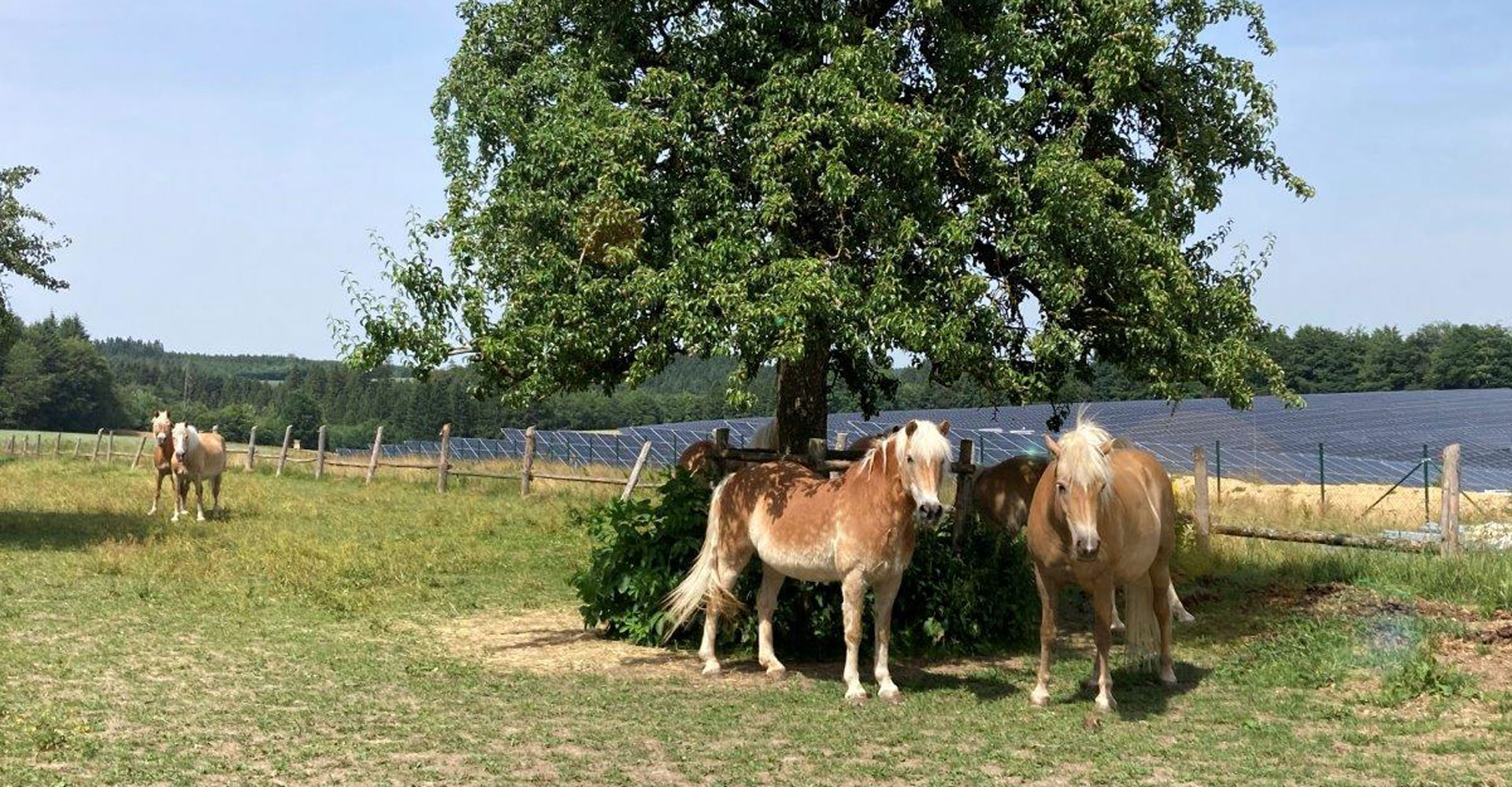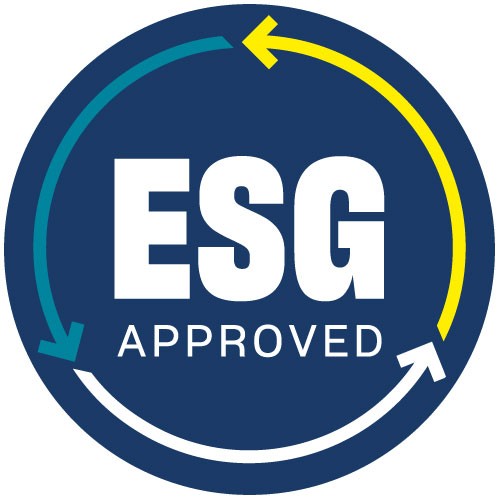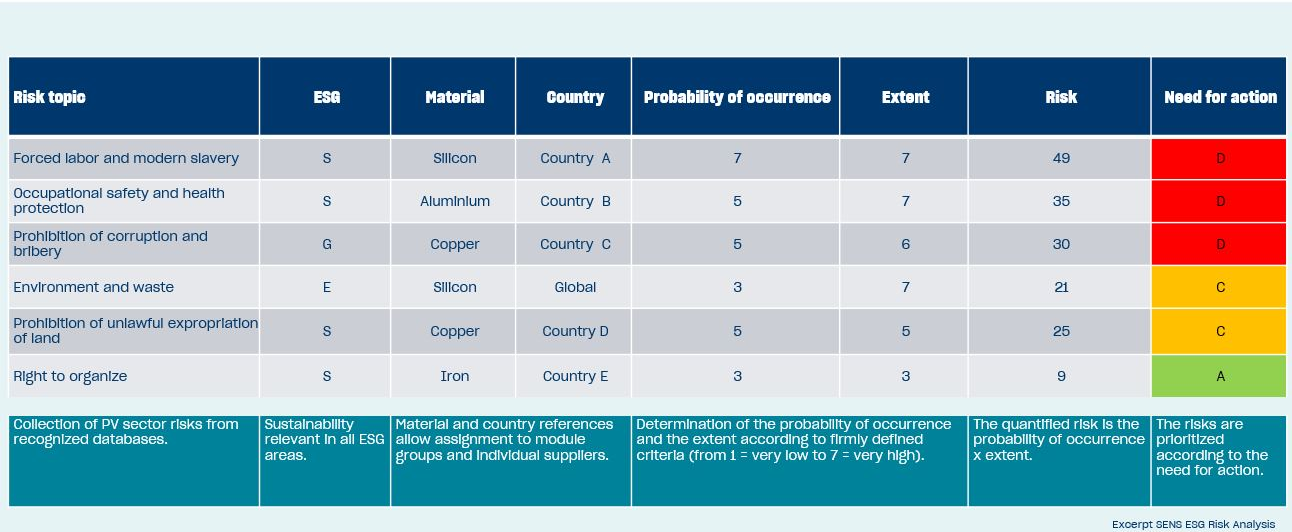
Sustainability to the power of 3: ESG-tested solar project in Rickertsreute
Iqony Sens approves the first PV project with its own ESG standard and realises all around sustainable photovoltaics
Summer - the buzz of bees, the scent of fields in bloom, the rattle of passing tractors. Summer has arrived in Rickertsreute in the Lake Constance district and thus also on the organic farm there, where the closeness to nature is evident in many ways. This also applies to the way in which regenerative energy is produced: In recent months, Iqony Sens has realised a hybrid solar project there, including a solar park, large-scale storage and PV roof system, which was tested according to the specially developed Iqony Sens ESG standard and rated as sustainable.
Hybrid & sustainable all around
From a technical point of view, the SENS solar project in Rickertsreute is already special: the combination of solar park, large-scale storage and PV roof system will generate 15 GWh of electricity per year. At the same time, the modules fit into the sustainable and idyllic overall picture of the organic farm and are surrounded by mixed forests and flowering bee meadows.
However, the sustainability of this project begins far before the electricity is generated: with the help of the SENS ESG standard, this project was audited according to certain criteria along the entire supply chain and rated as sustainable.
Approved sustainability according to the Iqony Sens ESG standard
The Iqony Sens ESG audit is a voluntary verification of certain criteria from the areas of environment, social affairs and governance. With this approach, Iqony Sens sets new standards for the sustainability of solar projects and even exceeds current legislation.
Together with an external corporate governance, responsibility and sustainability consultancy, Iqony Sens developed the ESG standard and had the hybrid solar project in Rickertsreute audited by the external assessor Agimus according to predefined criteria. Within the assessment phase in December 2022 and January 2023, a total of seven aspects surrounding the PV project were comprehensively checked:
1) Land availability:
When planning the project, care was taken to make optimal use of the available land on the organic farm in Rickertsreute. Through the efficient placement of the solar modules and the additional implementation of a PV roof system, the use of the land for agriculture and biodiversity is still possible.
2) Assessment of the sustainability management of all suppliers and implementing companies:
To ensure that all partners of the project act sustainably, suppliers in the supply chain and executing companies were assessed for their sustainability management. This assessment was carried out with the help of a risk analysis (point 3) and evidence of compliance with the guidelines and standards (point 4). All suppliers to the project are thus obliged to adhere to the Iqony Sens Code of Conduct.
This ensures that the entire value chain of the project meets the highest sustainability standards. Potential suppliers who could not demonstrate required minimum standards were excluded from the project.
3) ESG risik analysis:
An in-depth environmental, social and governance (ESG) risk analysis was conducted to identify potential risk factors and take appropriate measures to minimise them. An overview of the evaluation criteria is shown in an exemplary presentation of the risk analysis.
Exemplary extract from the risk analysis of the Iqony Sens ESG standard
In Rickertsreute, the location of the solar park posed a particular risk. It was built on farmland in a depression, which meant that there was a risk of construction work altering the quality of the groundwater. Therefore, during construction, care was taken to ensure that substances that penetrate the earth through the substructure, among other things, do not pollute the water.
4) Guidelines and standards:
The project complies with all relevant renewable energy guidelines and standards: the reparability and recyclability of the materials used (point 5), environmental standards (point 6), and compliance with human rights as defined by the LksG (Supply Chain Sourcing Obligations Act, in German “Lieferkettensorgfaltspflichtengesetz”) and the Taxonomy Ordinance (point 7). This ensures that the implementation of the project complies with applicable regulations and supports sustainable practices.
5) Repairability and recyclability of the materials used:
The materials used in the solar park, large-scale storage and the PV roof system were assessed in terms of their reparability and recyclability. This means that in the event of damage or defects, the materials can be reused or recycled, resulting in a reduced environmental impact as the materials are returned to the cycle. Thus, almost all materials used in Rickertsreute can be reused: for example, the copper of the cables, steel and aluminium of the substructure, and the glass of the solar modules.
6) Environmental standards and contribution to reducing greenhouse gas emissions:
The PV project meets high environmental standards and actively contributes to the reduction of greenhouse gas emissions. The use of solar energy enables low-carbon energy production and thus makes an important contribution to climate protection.
The production of the modules and the construction of the plants in Rickertsreute pay for themselves in terms of energy after a few years. In total, the hybrid PV project saves about 7,000 tonnes of CO2 annually.
7) Compliance with human rights as defined by the LksG and the Taxonomy Ordinance:
The project takes human rights into account in accordance with the LksG and the Taxonomy Ordinance. This means that the rights of workers are respected and social responsibility is assumed in the planning and implementation of the project. Based on the audit of all suppliers and service providers, it could be ruled out that human rights were violated in the project in Rickertsreute.
"We can now proudly say: the project can be described as sustainable in the sense of this ESG assessment," summarises Christian Franz, Global Director Operation & Maintenance at Iqony Sens. And it will not stop at this one ESG project.

Establishing the Iqony Sens ESG standard
"This pilot project is the first of many projects that we would like to implement with our Iqony Sens ESG standard. With it, we offer our customers the opportunity for subsidies within the framework of a green investment, but above all, we are also setting our entire corporate actions on a new, sustainable level," explains Christian Franz, Global Director Operation & Maintenance at Iqony Sens. "Now we have to establish this standard in the solar industry." An ambitious goal that Iqony Sens will tackle together with customers and partners.
Would you like to learn more about the Iqony Sens ESG standard?
Image: Philipp Rosenkranz (Iqony Sens)
Published: 26.07.2023

